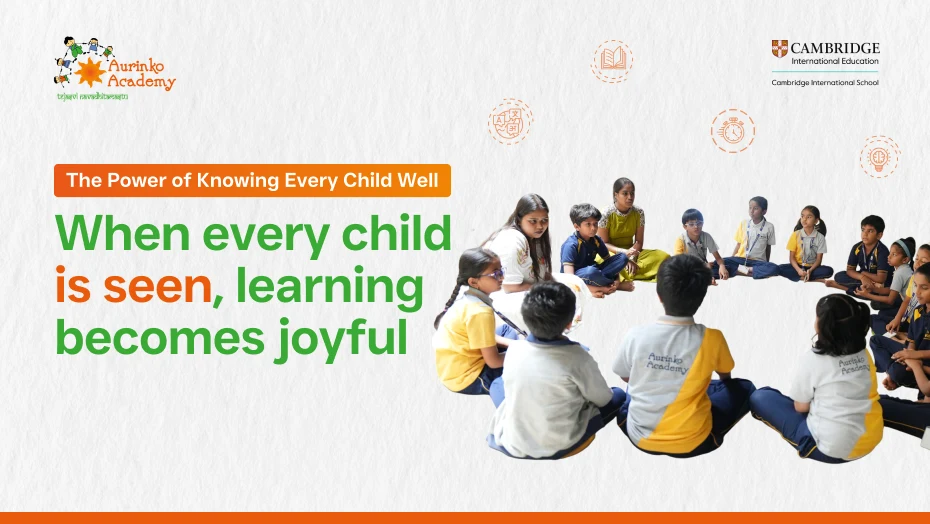Exams have always been synonymous with getting overwhelmed for the majority of students. One of the main reasons is a lack of proper preparation or too much information for them to process. Preparing for the IGCSE exams, similarly, can feel like a big task, but with the right plan, it becomes manageable and even rewarding. These exams are known worldwide for their high standards and focus on real understanding, not just memorization. More than 15000 students from 400 schools spanning across India, Cambridge IGCSE and International AS & A level results for the March exams in 2024, according to the Hindustan Times. This showcases the popularity of the IGCSE curriculum and how parents prefer it for their children.
A clever approach to IGCSE exam preparation is essential, regardless of your goals, whether they are to achieve high grades or simply develop excellent academic abilities. The IGCSE curriculum emphasizes critical thinking, problem-solving, and applying what you have learned, in addition to hard study techniques. Good study habits and individualized support can therefore have a significant impact. This post will outline some of the tried-and-tested study methods that leading coaching organizations and seasoned educators suggest students use to achieve the outcomes they want.
12 Practical Tips for IGCSE Exam Preparation

You don’t need to study harder. You need to study smarter. These practical tips will help you stay focused, manage your time, and boost your confidence for the IGCSE exams.
1. Start Early, Stay Steady
Kicking off your IGCSE exam preparation ahead of time helps reduce stress and gives you space to learn at a comfortable pace. Cramming never works as well as planned, but consistent revision does.
2. Build a Personalized Revision Timetable
Structure your study time with a clear plan. Here’s how:
- Focus more time on tricky subjects
- Add lighter topics between tougher ones
- Include breaks so your brain can reset
- Stay realistic and flexible
Setting a goal for each session keeps you focused and helps you track progress.
3. Make Effective Notes
During your IGCSE preparation, take notes that are short and sharp:
- Jot down important definitions, concepts, and formulas
- Use visuals like charts or mind maps if they help you
- Summarize after each topic and keep reviewing
Good notes make last-minute revisions a lot easier.
4. Discover Your Learning Style
Some students like visuals, while others prefer listening. Some study better at night, while others are early risers. Find out:
- Where do you study best (home, library, outdoors)
- When you’re most focused
- What tools help you remember (videos, diagrams, quizzes)
This makes your study tips for IGCSE way more effective.
5. Organize Your Study Resources
Gathering and managing your materials is essential for efficient IGCSE exam preparation. Don’t waste time searching. Have everything in place:
- Create separate folders and notes for each subject (both digital and physical)
- Use sub-folders for past papers, mark schemes, notes, worksheets, and formula sheets
- Maintain a master tracker (spreadsheet or notebook) for where everything is stored
- Use cloud backups for digital files to avoid accidental loss
Being organized saves you time and reduces unnecessary stress during revision.
6. Use Teacher Support
Teachers are your best guides. Don’t hesitate to:
- Ask them to set up practice questions
- Time your answers like a real exam
- Learn techniques to choose and approach the right questions
- Get detailed feedback and suggestions
This can improve your performance and boost your confidence.
7. Mind Mapping and Visual Learning
Using visual tools is one of the smartest ways to simplify and retain complex information, especially in subjects like Biology, Geography, and History.
Here’s how to boost your IGCSE exam preparation through visual learning:
- Create color-coded mind maps to connect related ideas
- Draw flowcharts to understand sequences or processes
- Use diagrams and illustrations to grasp scientific concepts
- Design timelines for historical events
- Use symbols or icons for faster recall during revision
This approach helps make your study tips for IGCSE more engaging and easier to remember.
8. Practice Past Exam Papers
Past papers are your best friend in IGCSE exam preparation.
- They teach you the exam style and structure
- Help with time management under pressure
- Show you how real answers are marked
After solving, compare with the marking scheme to see how Cambridge expects answers to be structured.
9. Stay Active and Rested
A healthy body supports a sharp mind:
- Sleep 7–8 hours a night
- Take walks or stretch between study sessions
- Drink enough water and eat nourishing food
This helps improve focus and reduce stress.
10. Start with the Hardest Topics First
Tackle your most challenging subjects when your energy is highest, usually earlier in the day. This way, you can:
- Make progress on tough content
- Ask for help. The earlier the better.
- Feel a sense of achievement early on
11. Study in Bursts, Not Marathons
Use focused study blocks like the Pomodoro technique:
- 25 minutes of study
- 5-minute break
- Repeat 3–4 times
Short, intense sessions help you stay fresh and get more done without getting tired or overwhelmed.
12. Review Your Plan and Progress Regularly
Your first plan doesn’t have to be your final one. Be flexible:
- Adjust the timetable if a topic takes longer
- Shift strategies if something isn’t working
- Use insights from IGCSE coaching to stay on track
This way, you keep learning effectively without getting stuck.
On the Day of the IGCSE Exam

The night before and the exam morning can be stressful. Here’s how to stay calm and prepared:
- Sleep well the night before—don’t try to study till 2 AM.
- Check the exam time, date, and venue one last time.
- Wake up early and give yourself plenty of time to get ready, even mentally.
- Read the question paper carefully.
- If you don’t know something, move on and come back later.
- After finishing, always revise your answers—start from the end, where more marks are often at stake.
These simple actions can help you avoid silly mistakes and boost your overall score.
Conclusion
Mastering the IGCSE exams isn’t just about memorizing textbooks. It’s about understanding, applying, and preparing smartly. With the right study tips for IGCSE, enough practice, and proper support, you can turn this challenge into an achievement.
At Aurinko Academy, we go beyond textbooks. As a leading Cambridge International school in Bangalore, our approach combines expert guidance, hands-on learning, and personalized mentoring to help every student maximize their potential.
Explore IGCSE excellence with Aurinko Academy. Enroll today and take your first confident step toward academic success.






